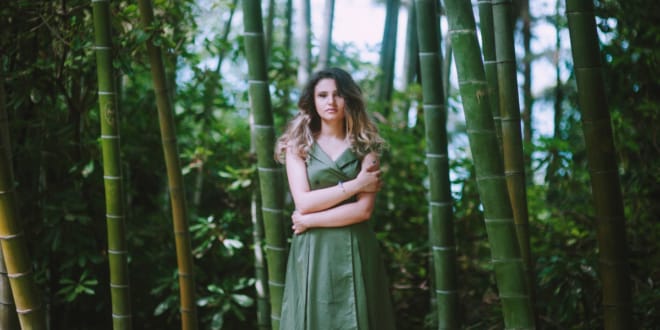by Peter Minkoff
Contributing Author, a passionate writer, professional fashion, lifestyle, and health, expert
Although bamboo is not the first thing that crosses our minds when it comes to clothing, bamboo fabric is highly beneficial, both to us and the environment. Bamboo has numerous health benefits and it’s the perfect fabric for active, eco-friendly living. It has a soft, premium feel, and it is a highly durable material. Best of all, it is made from a sustainable and renewable source, which makes it a perfect eco-conscious fabric. There is no other textile that can compare to bamboo, not even the most luxurious of cotton fabrics. To that extent, here are some of many positive impacts bamboo fabric has on our lives and the world around us:
5 Important Benefits of Bamboo Fabric for You and the Environment
- Bamboo Is Antibacterial and Antifungal
Bamboo kun is a natural antimicrobial bio-agent found in bamboo, which is what gives bamboo fabric its antibacterial and antifungal properties. These properties are preserved in the bamboo fabric when it undergoes mechanical processing, which makes this material resistant to bacterial and fungal growth, and even unpleasant odors. Even after the fabric has gone through many wash cycles, it never loses these important qualities and it retains the ability to repel unpleasant and harmful infestations. Not even the most luxurious cotton, which is the only comparable material to bamboo, has these special protective qualities.
- Bamboo Is Hypoallergenic
Bamboo fabric is the best choice for anybody with sensitive skin or dermal allergies, as it doesn’t itch or irritate your skin. A key benefit of bamboo is that it is naturally hypoallergenic and very gentle on the skin. This material is also successful at repelling viruses and harmful microorganisms, as well as dust mites and other bugs. Therefore, it is a perfect material for anyone with allergies or respiratory conditions to use for pillow cases, bedding, and anything that they come into contact with. It is also the safest material for babies. Organically grown and processed bamboo is a natural protectant and the perfect fabric for anyone who is particularly sensitive to harmful substances.
- Bamboo Is Absorbent and Breathable
Whenever we buy clothes, we tend to choose style and brands over practicality and comfort, which is why we should turn to bamboo clothing. Not only are these clothes stylish, but they are made with your comfort in mind, from a lightweight, naturally soft material. And unlike the sweaty feeling and odor you get when wearing synthetic clothing, bamboo keeps your body fluids and odors under control. This material draws the sweat from the body and keeps you ventilated throughout the day, which is why it is also a great option for active wear. Bamboo fabric can take in three times more water than its weight, which means that it is also able to get rid of moisture much faster. Additionally, bamboo is a self-regulating material, so it provides good thermal protection in colder months, and it cools you off in warmer weather.
- Bamboo Is Chemical-free
Toxic pesticides and insecticides are often used when farming plants for manufacturing textiles. They are sprayed onto the plant and into the soil, which makes these harmful chemicals an integral part of the fibers that are used for making the materials that come into contact with your skin every day. Even after undergoing mechanical processes, these toxins can remain on the fabrics, along with their harmful effects. Bamboo, on the other hand, does not require any toxic chemicals in order to grow tall and strong, which makes bamboo fabric the safest and the most environmentally friendly material.
- Bamboo Is a Self-Sufficient Resource
The miracle of bamboo is that it has the ability to sprout on its own, which means that it rarely, if ever, needs replanting. It is also the fastest growing plant on the planet; some species of bamboo can grow up to 4 feet a day and can be fully harvested in 3-4 years. Bamboo is also one of the most water-conserving resources on Earth. There is no need for irrigation, bamboo uses water much more efficiently than other plants and it only requires rainwater to grow and thrive. Bamboo is the most sustainable fabric option; unlike other fabrics, it does not contribute to pollution, but instead has a highly positive impact on the environment.
Peter is a health writer at HighStyleLife magazine, living between Europe and New Zealand. Follow Peter on Twitter for more tips.







